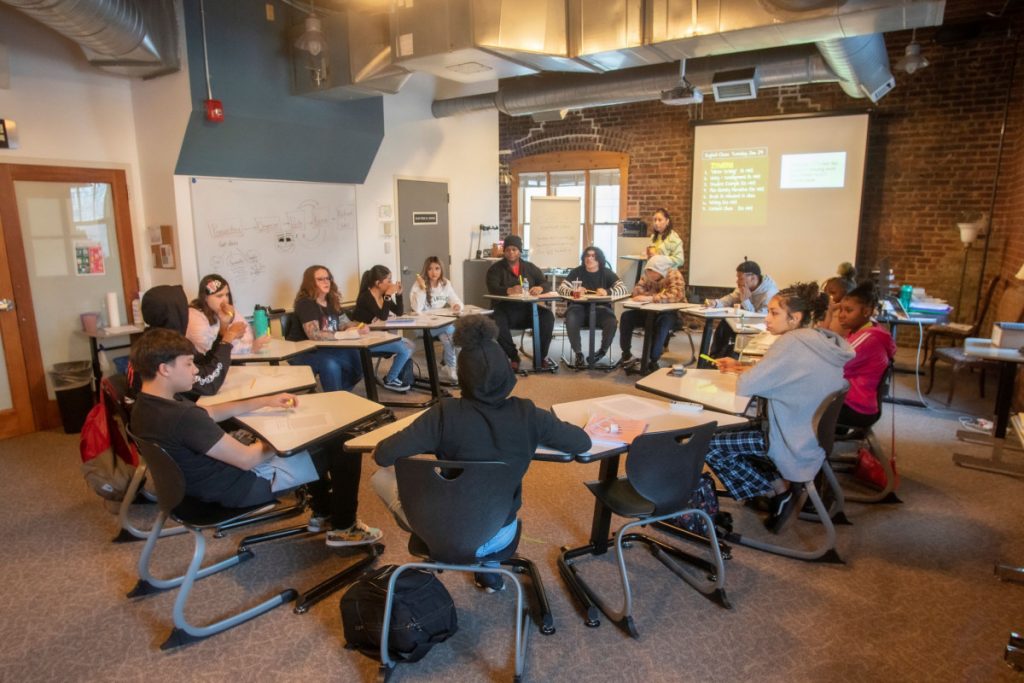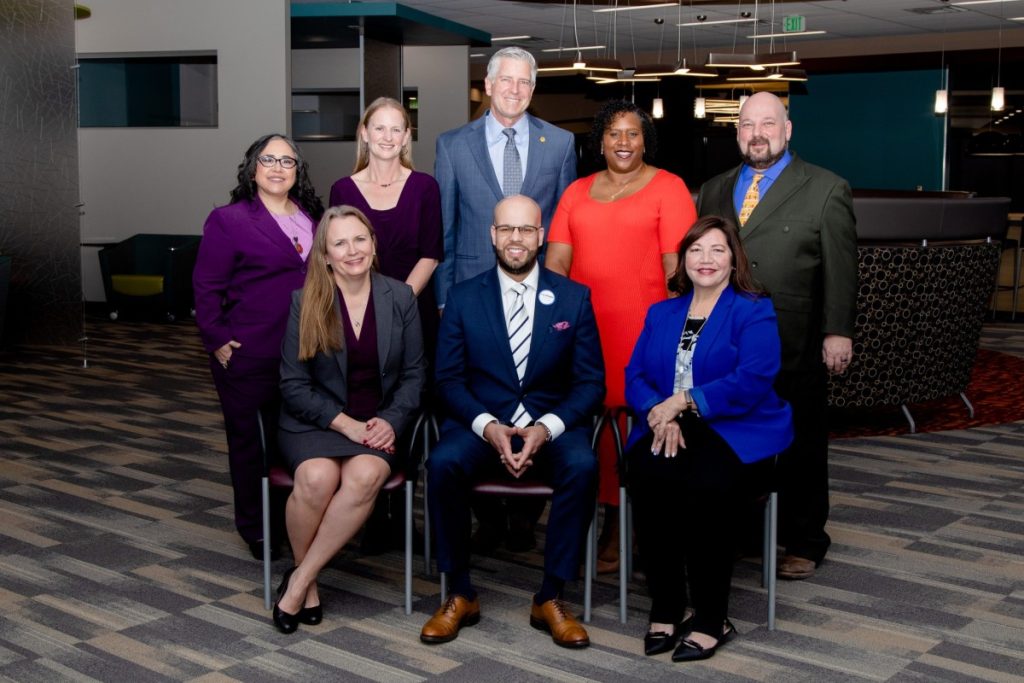As they prepare to launch a national search for a new superintendent, Denver school board members are pledging to involve the community in every step of the process.
It’s an admirable intention, and the board should be commended for it. During a work session December 14, board members and DPS staff began laying out how that process might work. See this 13-slide presentation for early details.
The Denver Public Schools Family and Community Engagement department is working to redefine how the district undertakes community outreach and involvement in key decisions. Anyone who has been around the district as long as I have (25+ years) knows that DPS’ history of failed community engagement efforts is long and unfortunate.
Over the years, more than a few people have become cynical about the district’s efforts. Too often, DPS community engagement has either been an afterthought or a transparently manipulative and coercive process that attempted to place a thin layer of community acquiescence on top of a preordained outcome.
During the recent work session, Vice President Jennifer Bacon said the board wants to take the new framework and use it for the upcoming superintendent search. You can view the framework on slide 7 of the presentation linked above It would create a process that aims to be transparent, build relationships, commit to co-creation, commit to healing past wounds, and focus on equity.
This all sounds good in theory. So far, understandably, it is vague. It raises some questions in my mind that I’ll get to below. First, though, I asked some people with deep experience in successful community engagement what an authentic community process and end result should look like.
Vernon Jones, executive director of the Northeast Denver Innovation Zone, helped craft the new engagement framework. He offered this response:
“We’ve heard a lot of talk over the decades about community processes. I still don’t believe that we do them effectively because community requires proactive development of depth of relationship. That is where we fail, we are not regularly developing and growing our relationships, so community — those relationships operating as a collective — is really not cultivated as it could be.
“That being said, it doesn’t mean that it can’t be accomplished through this search process. I actually encourage us to use this as an opportunity for developing depth of relationship, to form authentic community, that will yield an outcome where we can genuinely say, “that’s our superintendent.”
“It’s simple. Individuals will have the opportunity to engage in the search process, as determined by the board and their selected search firm, to develop depth of relationship with one another by sharing dispositions, desires, dreams, and concerns that will inform the selection of our new superintendent by our elected board.”
Gabriella Carrethers, youth policy link coordinator with Young Aspiring Americans for Social and Political Activism (YAASPA), echoed some of Jones’ message:
“We must be intentional about seeking out the voices that we don’t usually look for or hear from. We need to find a diversity of ways to include all communities in this process. It doesn’t have to be your community, but have all voices been included? Did we do everything we could to make this happen? Were we creative about how we approached this process? Were we equitable? Did we include identities/voices that were not our own individual identities/voices? Did we do our due diligence? Did we include community throughout ALL levels of this process?…
” Did we put a backseat on our own agendas to think about what is best for the most directly impacted populations? How much time did we spend listening? How can we listen more and who didn’t we hear from? Did we respond appropriately to what community asked for and honor their needs the way they wished?…Too often feedback lays by the wayside and is not reflected in final decision outcomes; we shouldn’t ask if we don’t intend to listen and respond. We need to sacrifice our individual ideas of what’s best to build something that works and is adaptable when it needs to be because that’s how we dismantle inequitable systems.”
And this, from Nicholas Martinez and Ariel Smith, co-founders of Transform Education Now. Its focus is less on the superintendent search than on how the board can listen to its constituents during this especially painful time in our history:
“We need to create a better understanding around what opportunities and challenges lie ahead for our communities in the coming year. We know that the challenges that families were facing before COVID still exist but now there are more- we know parents are worried that their students’ have fallen behind and we know that there will need to be very intentional planning around supporting our schools as they reopen and mitigating learning loss, while supporting families who are not comfortable returning to in person learning yet.
As the board spends time listening to the community, we hope that they will take the time to deeply understand the challenges that we need to build solutions for- there is a lot of healing that needs to happen in the coming year and in order for that to truly happen, we have to spend time understanding the pain.”
Listen and build relationships.Those are the common themes I take away. And that’s precisely where my questions come in.
Listen to and build relationships with whom?
What do we mean by community?
I asked Jones about this, and he replied: “The process is designed to create a WE. The board is a ME. Revolution must move from ME to WE. Our community is fragmented into ME camps, a healing process creates a WE camp. A WE camp is best for children!”
As Jones points out, there is no one ‘community’. There are families, neighborhoods, and individuals, some bound together by shared experiences of oppression or privilege, some set starkly in opposition to one another by history and/or divisive and manipulative leaders. Never has that been clearer than it is today.
The board appears to be committing to listening and building relationships with as many disparate communities as possible. That will be time consuming and challenging, but it is a worthy goal.
At the end of the day, though, it is the board that must choose the new superintendent. And in so doing, it is going to upset and alienate a substantial number of people. In the current, polarized environment there’s no individual who will satisfy everyone.
If, as seems likely, the board hires a leader who is skeptical about accountability that includes standardized testing, charter schools, and innovation schools, and who sees the surest path to success as building a strong system of district-run neighborhood schools, some people will see this as a giant step backwards.
If, however — as seems much less likely — the board hires a superintendent who is agnostic about school governance and cares first and foremost about quality, even if that means more charters and innovation schools, a different set of groups and individuals will be unhappy — and will see the board’s action as a major betrayal.
In other words, the decision is ultimately the board’s and it is the board that will be held accountable. That’s where the buck stops, and that’s how it should be.
I’ll leave the last word to Jones, who, unlike me, remains unflaggingly optimistic that the superintendent search provides an opportunity for factions to come together. Those who dig in their heels will show their true colors, he said.
“Some people will individually stay as “ME” and be exposed that they are not really aligned for the good of all children,” Jones said. “Nothing exposes selfish agendas like other people working together!”




